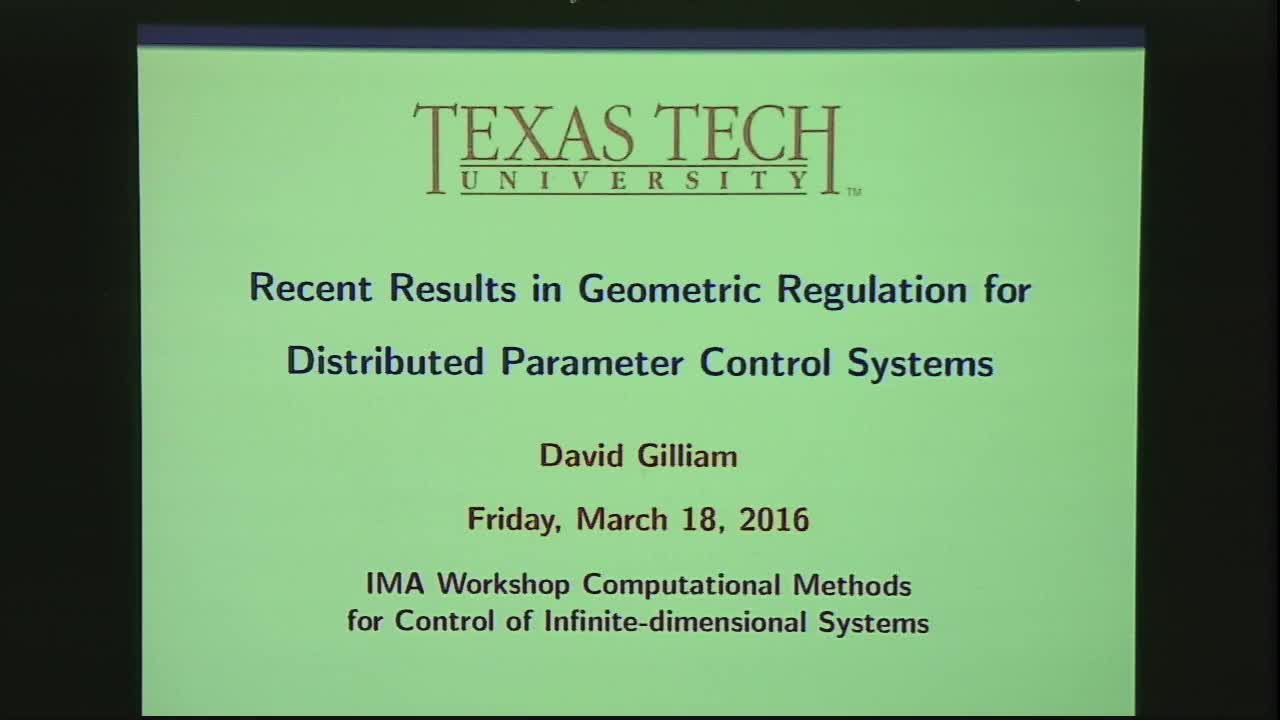Recent Results in Geometric Regulation for Distributed Parameter Control Systems
Presenter
March 18, 2016
Keywords:
- Distributed Parameter Control System, Regulation, Regulator Equations, Error Analysis, Iteration Method, Geometric Control
MSC:
- 37N35
Abstract
The problem of designing control laws to achieve regulation of complex linear or nonlinear systems is a difficult task and has received considerable attention in the engineering literature. This is particularly true in the case of nonlinear systems governed by partial differential equations and especially for the boundary control case where the sensors and actuators produce unbounded operators in the Hilbert state space. In this talk we present a very brief introduction to geometric design methodology based on solution of the Regulator Equations, a coupled pair of operator equations, whose solvability it equivalent to the solvability of the regulator problem. Historically, the geometric approach to regulation dates back to the pioneering work of B. Francis who showed that the solvability of a multivariable linear regulator problem corresponds to the solvability of a system of two linear matrix equations, called the regulator equations. C.I. Byrnes and A. Isidori extended the results of Francis to finite-dimensional nonlinear systems giving necessary and sufficient conditions for solvability of the regulator problem in terms of solvability of a pair of nonlinear regulator equations.
The solution of the regulator equations also provides a control law that solves the regulation problem. Unfortunately, the regulator equations can be very difficult to solve or even obtain accurate numerical approximations to the solutions. In this talk we present some resent work in which we replace the usual regulator equations by an equivalent set of dynamic equations and introduce an iterative algorithm that produces a sequence of accurate approximate control that can be easily computed using off-the-shelf software. A major advantage of this approach is that an explicit error analysis is available for each step in the iteration. In particular, the geometric convergence of the iteration error can be controlled by changing a regularization parameter. We demonstrate our estimates on a variety of control problems in multi-physics tracking and disturbance control applications.
